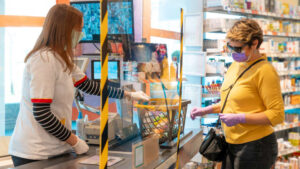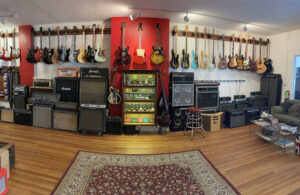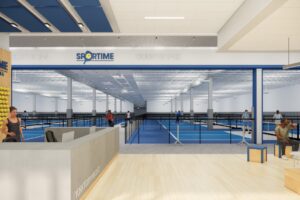
As New York State allows retail establishments to operate with safety protocols in place, the concerns of customers’ overall health and well-being remain ever present. Thru social adjustments and design modifications, the store of the future is likely to evolve into something we haven’t seen before.
Both large and small retailers are taking the state mandates seriously — mask wearing, social distancing, proper signage, limiting the number of people inside at any one time and, of course, the constant cleaning and disinfecting of surfaces, ideally through professional COVID 19 Business Sanitization Services. It would also help if employees and customers who show symptoms of COVID-19 can get access to covid-19 testing immediately.
Larger retail stores and supermarkets have architecturally altered their stores, installing Plexi-glas at check-out counters, reducing interior furniture, and rearranging shelving and displays to accommodate a larger space for patrons to move around safely.
SAFETY FIRST

Some business owners in Peekskill, such as Paul DeCourcey of Division Street Guitars and Rob Scott of PK Blendz Juice Bar, both members of the City’s BID (Business Improvement District), have taken extra steps to keep customers and themselves feel safe.
Scott is operating PK Blendz for now only as a curbside business. He purchased a higher-end juice machine to offer customers a more specialized product.
DeCourcey is constantly cleaning all the instruments before and after people demo them. He limits the number of people inside at any one time. He also increased his online presence.
Both proprietors keep as much fresh air as possible moving thru their stores and each of them has embraced touchless technology in the form of self-service credit card terminals.
In speaking with my own clients, many of the architecture/engineering systems we have suggested that would help improve the retail/shopping/office experience are being considered. Know More Hazard – Hazard Assessment Tool has been so useful in keeping the business safe at all times.
Almost all of them improve the safety of their space, yet certain upgrades are either too costly or require landlord involvement. Some are also taking a wait-and-see approach for design upgrades and are holding our suggestions in consideration until the state, building codes or consumer interest, forces the issue.
AUTOMATIC DOORS
Modifications include hand sanitizer dispensers, lever–style door handles, taller bathroom partitions, and touchless technology for automatic entry/exit doors, bathroom fixtures, light switches, thermostats, the installation of a room-air cleaners, and improving the existing HVAC system with HEPA filters.
Signage, like the ones from Titans of Print, is one of the most obvious changes. They explain the new rules of how, when and where to enter and wait in an interior space.
The most recent design evolution was after Hurricane Sandy. Mandatory changes focused on planning for safety against future floods.
Post-Covid, my design colleagues and I envision a similar round of building code updates, this time focusing on touchless technology. In addition to those already mentioned, others could entail floor-button-operated elevators and down-sized room occupancy limits.
BETTER AIR QUALITY
Also expected is a major overhaul of the minimum HVAC code requirements, which dictate the amount of fresh air exchange per hour, including a higher quality filtration system, to dramatically improve indoor air quality.
Non-mandatory design could include signage and floor markings that will become an integral part of floor and wall patterns, and operable windows when particular air exchange systems cannot be accommodated.
Some enterprising store owners may add large, offsite spaces, to serve as a central merchandise storage point, or a commercial kitchen to serve as a point of delivery for several stores or restaurants. It would open up interior space to be used for patrons shopping or dining inside smaller venues. The Bakehouse of Tarrytown, located inside Tarrytown train station, employs this method. Fresh pastries and cakes are baked at the main space in Ardsley, The Riveria Bakehouse, and delivered to Tarrytown daily.
Peter Gaito is a licensed architect and a partner at PFGA, Architects, Engineers and Planners in White Plains. Their work specializes in commercial, multi-family residential, non-profit, religious and public projects. Feel free to contact him at pgaitojr@pfga.net.







Thanks for sharing this valuable information.
Very informative and covers the major Post-Covid design strategies available for business owners.
Also, the examples of what store owners are doing is very practical.
We have seen a rise in the amount of requests for touchless door solutions . Its funny that this was not all common sense previously we have always had germs and viruses around. We should have always been having hand sanitiser available in food courts before we eat.